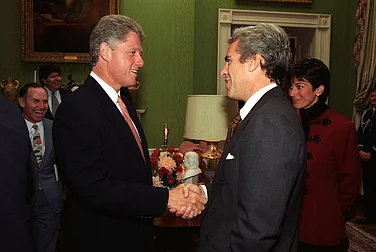The three-day visit of Chinese Foreign Minister Wang Yi to the United States has laid the groundwork for a meeting between US President Joe Biden and Chinese President Xi Jinping next month.
The Biden-Xi meeting next month would take place amid high tensions between the two countries over a host of matters, ranging from aggressive Chinese military posturing to US concerns over Chinese theft of critical Western technology, and raging wars in Ukraine and the Middle East.
Wang concluded the visit on Friday and held meetings with Secretary of State Antony Blinken, National Security Advisor Jake Sullivan, and Biden.
The Associated Press (AP) noted that the meetings have laid the groundwork for a meeting between Biden and Xi next month on the sidelines of the Asia-Pacific Economic Cooperation (APEC) Summit in San Francisco, which will take place on November 11-17.
The official who spoke on the condition of anonymity said the US and Chinese governments have still not worked out the details on the exact day of the meeting, venue, and other logistics, reported AP.
Wang's visit to the United States came after a series of high-profile visits to China and meetings elsewhere with top Chinese leaders, including by Blinken, Secretary of Treasury Janet L Yellin, Secretary of Commerce Gina Raimondo, and Sullivan. The meeting between Biden and Xi is the surest sign yet that even as the Biden administration deals with two wars in Ukraine and the Middle East, the primary focus remains at China which it identifies as biggest strategic competitor.
White House National Security Council spokesman John Kirby said Biden viewed his meeting with Wang as "a positive development, and a good opportunity to keep the conversation going", reported AP, adding that the White House also said that Biden "emphasized that both the United States and China need to manage competition in the relationship responsibly and maintain open lines of communication" and he "underscored that the United States and China must work together to address global challenges".
In its readout of the Blinken-Wang meetings, the US Department of State said the officials addressed "areas of difference" and "areas of cooperation" while Blinken "reiterated that the United States will continue to stand up for our interests and values and those of our allies and partners".
Wang's US visit came at a time when tensions between the two countries are high over over U.S. export controls on advanced technology to China and China’s aggressive military actions in the South China Sea and increased espionage efforts in the West, including in the West where a spy balloon earlier this year raised tensions further. Reports of espionage in the United Kingdom and Canada have also surfaced.
"Those relations have recently been defined by tensions over matters like Chinese espionage and American restrictions on technology exports to China. And they were severely tested in February when a Chinese spy balloon crossed over the United States before a U.S. fighter jet downed it off the coast of North Carolina. But officials in the Biden administration say that cooperation with China remains vital on issues like climate change and artificial intelligence and that dialogue can minimize the risk of conflict over China’s territorial claim to the democratic island of Taiwan," noted The New York Times.
Just this Thursday, the US military released a video of a Chinese fighter plane coming within 10 feet (three meters) of an American B-52 bomber over the South China Sea that nearly caused an accident. The AP further reported that the Department of Defence earlier this month released footage of over 18p intercepts of US air force planes being intercepted by Chinese plains in the last two years, a trend which the officials said was concerning.
"The U.S. also has renewed a warning that it would defend the Philippines in case of an armed attack under a security pact, after Chinese ships blocked and collided with two Philippine vessels off a contested shoal in the South China Sea. Beijing has released its own video of close encounters in the region, including what it described as footage of the USS Ralph Johnson making a sharp turn and crossing in front of the bow of a Chinese navy ship. The U.S. destroyer also was captured sailing between two Chinese ships," reported AP.


























